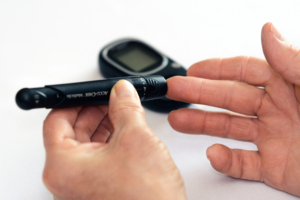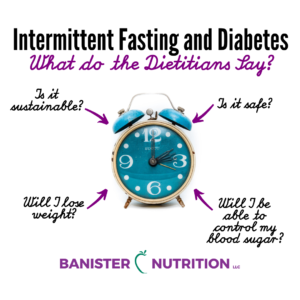Do People with Diabetes Pose a Higher Risk for COVID-19?
If you’re a person living with diabetes, you may be wondering why you are considered to be at greater risk for COVID-19. The general consensus at this time is people with diabetes (PWD) are not more likely to contract COVID-19, however, PWD may be at higher risk of experiencing serious complications.
Diabetes is a group of metabolic disorders of carbohydrate metabolism.

Photo by PhotoMIX Ltd.
Type 1 Diabetes
Is characterized as high blood glucose levels as a result of insufficient production of the insulin hormone
Type 2 Diabetes
Is characterized by the ineffective response of cells to insulin
For either diagnosis, managing your blood glucose level is your personal empowerment opportunity to take care of your health. Your physician and dietitian are your major allies to support and guide you in this endeavor.
When you manage your blood sugar (glucose) your risk of getting very sick is likely lower. If you experience high blood sugar or fluctuating blood sugars your body’s ability to fight off an infection is compromised therefore increasing your chances of getting seriously ill from COVID-19.
For PWD, hyperglycemia (high levels of glucose in the blood) can cause your immune system to not function well. If your immune system is not functioning at its maximum potential then it cannot fight off all of the viruses and bacteria entering your body. High blood sugar or fluctuating blood sugar weakens the immune system making you more vulnerable to become seriously ill if you contract COVID-19.
You can reduce your risk of infection by making lifestyle choices that will keep your blood glucose levels within normal limits. Treatment of hyperglycemia is even more difficult when you are running a fever, experiencing unstable food intake, and/or dehydrated. To achieve optimal glucose control you will need to check your blood glucose more frequently and make informed adjustments with your food intake, exercise, fluids and medication based on the glucose levels you are seeing.
Diabetes tips to forestall COVID-19:
- Control your blood sugar to keep your immune system at is best
- Monitor your blood sugar more frequently during stress
- Be more intentional to plan balanced meals with managed carbohydrate intake
- Be sure to keep at least two weeks of fresh, frozen or canned fruits and vegetables on hand
- Exercise daily to help manage your blood sugar and your mental health
- Get plenty of sleep; place a curfew on the internet and news
- Practice meditation, prayer, and optimism
Banister Nutrition provides Telehealth— give us a call to schedule an appointment. We would love the opportunity to help you to achieve improved blood sugar during this very uncertain time. ☺
CB


